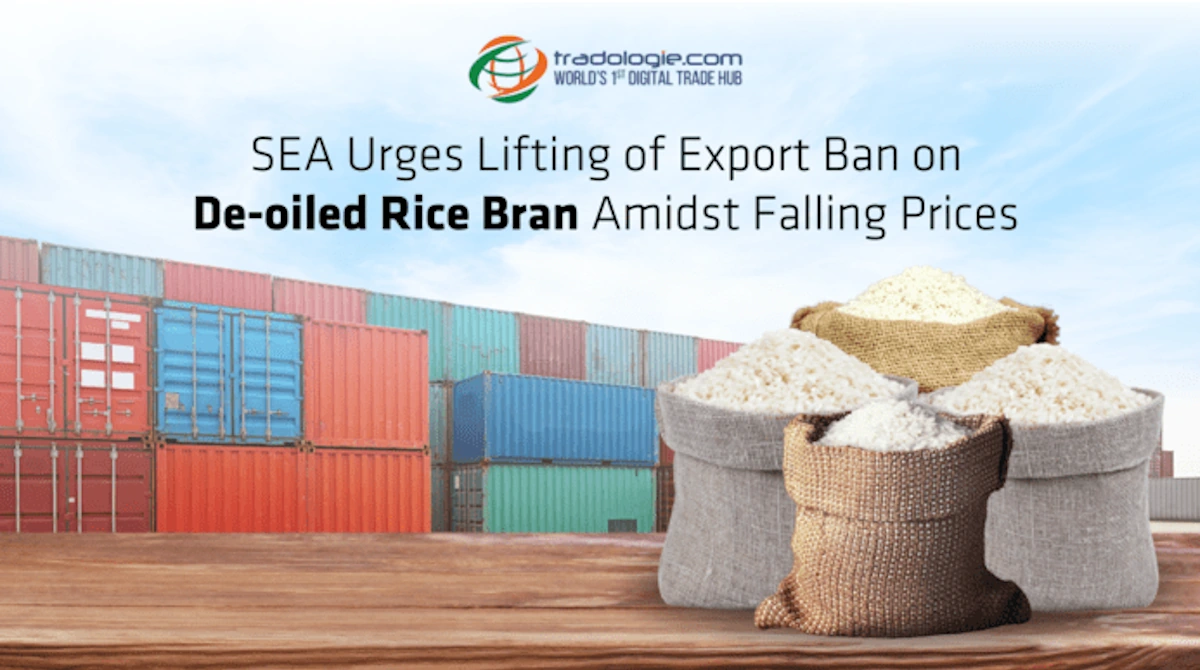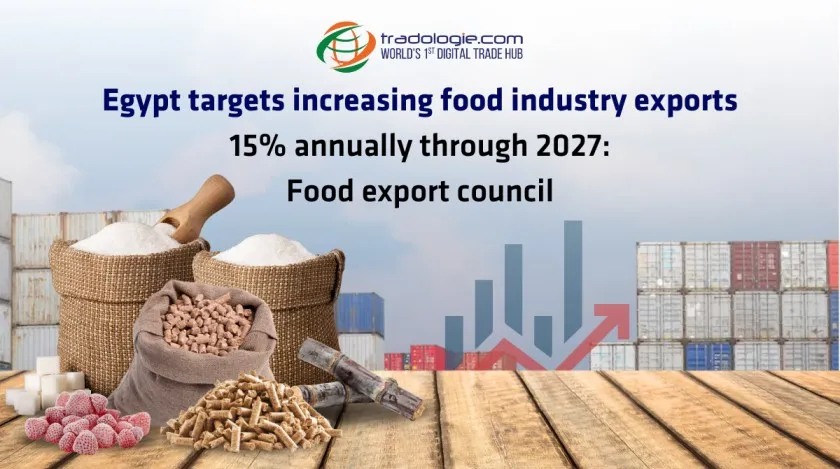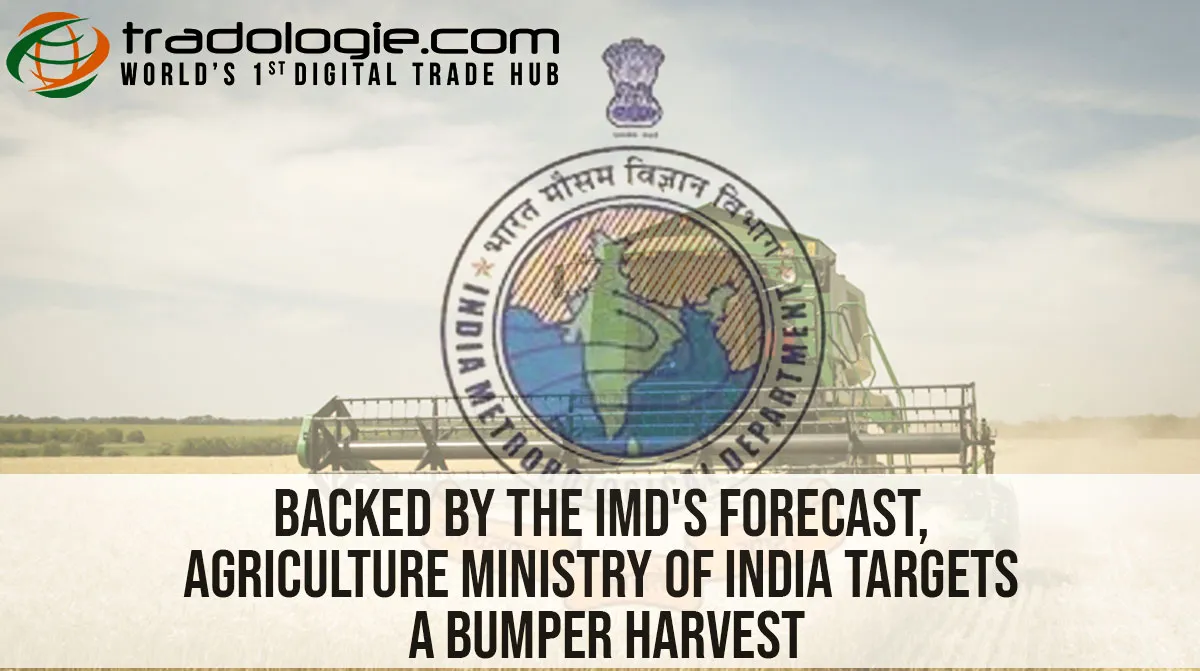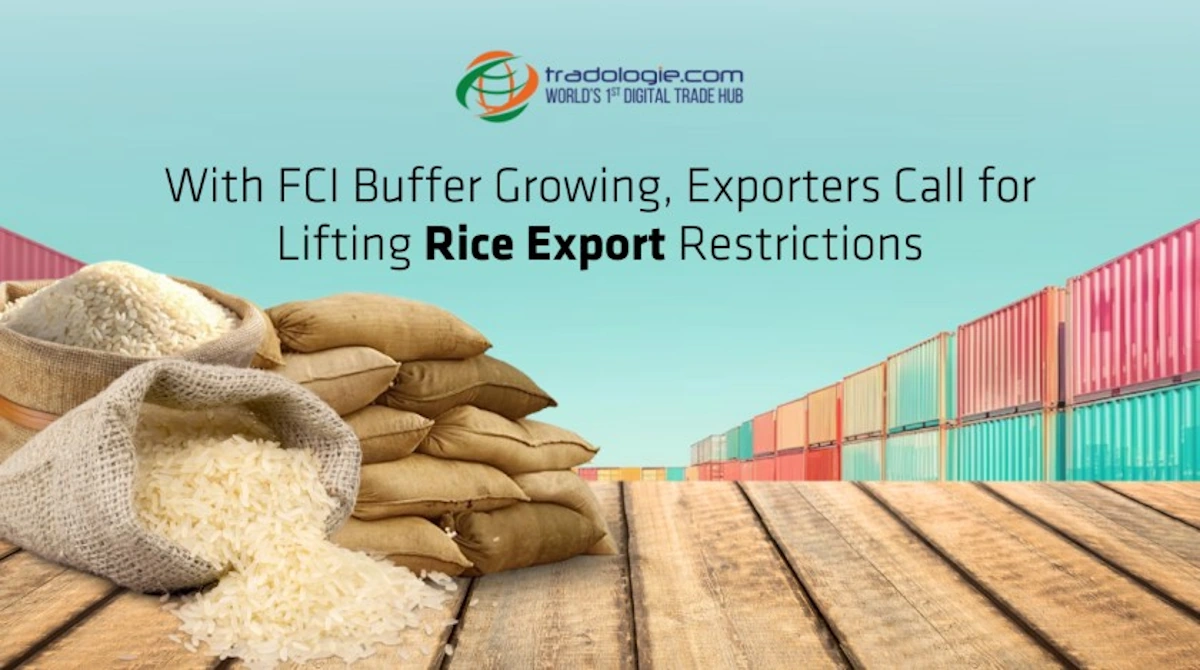The Solvent Extractors' Association of India (SEA) has called for the lifting of the export ban on de-oiled rice bran, emphasising the need to revive India's position as a key supplier in the global market amidst plummeting prices. De-oiled rice bran, a significant byproduct of the edible oil industry, is primarily utilised as animal feed, serving as a crucial component in the nutrition of livestock worldwide.
Keep reading this article if you want to know the latest updates on de-oiled rice bran's B2B commodity market exclusively by Tradologie.com.
Importance of De-oiled Rice Bran in Animal Feed
De-oiled rice bran is extensively used in the animal feed industry due to its high nutritional content and digestibility. Rich in proteins, fats, and fibre, it serves as an essential dietary supplement for livestock, contributing to their growth and overall health. The export ban, initially imposed citing high fodder prices, has affected India's export capabilities, particularly to nations like Vietnam and Thailand, where Indian de-oiled rice bran has been highly sought after
Industry Developments and Current Scenario
India traditionally exports approximately 5-6 lakh tonnes of de-oiled rice bran annually, leveraging its reputation as a reliable global supplier. However, the ban on exports, extended until July 31, 2024, has led to a surplus in domestic supply, thereby causing a significant decline in prices. This price depreciation is exacerbated by the increased availability of distillers' dried grains with solubles (DDGS), a competitive alternative sourced from the ethanol industry.
According to SEA, the recent slump in de-oiled rice bran prices necessitates the immediate lifting of export restrictions to prevent further economic strain on Indian rice exporters. The association asserts that reinstating export opportunities will not only support the recovery of global market shares but also bolster India's foreign exchange earnings.
Implications of Lifting the Export Ban
The potential lifting of the export ban holds promising implications for India's agricultural trade landscape:
- Revitalised Export Prospects: Resuming exports could enable Indian exporters to reclaim their market position in countries reliant on de-oiled rice bran imports for animal feed. This could lead to increased export revenues and strengthen India's economic ties with Asian markets.
- Price Stabilisation: With renewed export activities, there is a possibility of stabilising domestic prices of de-oiled rice bran. Additionally, heightened international demand could potentially drive prices upwards, benefiting domestic producers.
- Trade Balance Enhancement: Increased export earnings from de-oiled rice bran could contribute positively to India's overall trade balance, fostering economic stability and growth in the agricultural sector.
Conclusion
In conclusion, the call by SEA to lift the ban on de-oiled rice bran exports comes at a critical juncture when India's agricultural exports face challenges amidst global economic fluctuations. Reinstating export privileges for de-oiled rice bran could not only mitigate the current price decline but also reinforce India's status as a dependable supplier in the global animal feed market.
If you want to export animal feed in bulk, Tradologie.com is the best B2B platform. It facialites the bulk transactions without any middlemen through its state-of-the-art SaaS platform. Visit www.tradologie.com to explore B2B export opportunities and stay updated with the latest trends in the industry.
To register as a buyer, click here. To register as a seller, click here.





